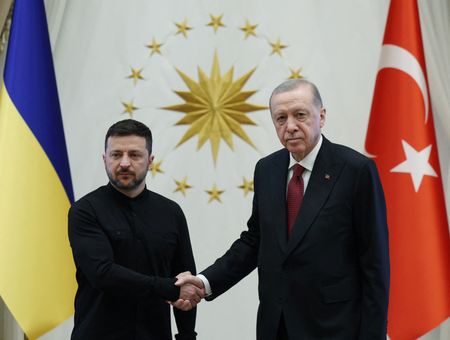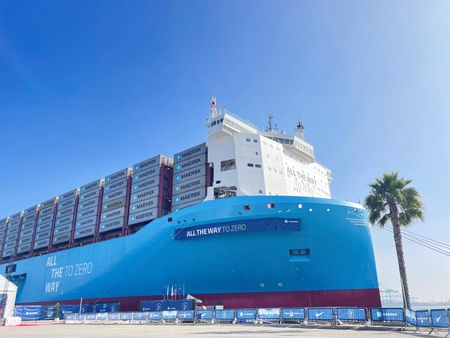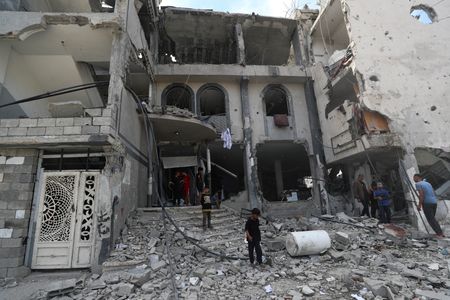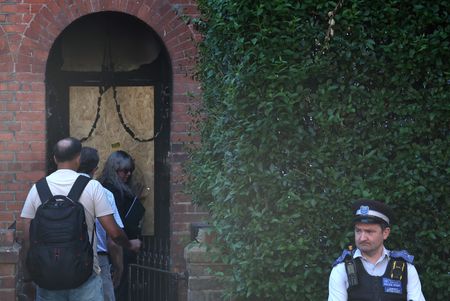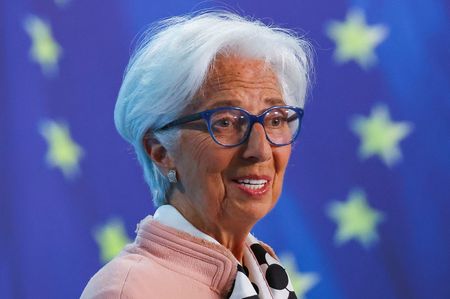By Canan Sevgili, Tiago Brandao and Andrei Khalip
(Reuters) – Portuguese will go to the polls on Sunday in their third general election in just over three years. Here are some of the main issues dominating the election:
WHY THE EARLY ELECTION?
Prime Minister Luis Montenegro failed to win parliament’s confidence in March in a vote he himself proposed after the opposition questioned his integrity over the dealings of his family’s data protection consultancy.
That prompted President Marcelo Rebelo de Sousa to disband parliament and call the election.
Montenegro, who heads the centre-right Democratic Alliance (AD), has denied any wrongdoing. Opinion polls show his reputation largely unscathed by what the public views as an ethical issue without criminal implications, despite the opposition’s attempts to picture him as corrupt.
WHAT OPINION SURVEYS SHOW
The AD came to power after winning an election last year with around 29% of the vote and 80 seats in the 230-seat single-chamber parliament. Opinion polls show it in the lead again ahead of the election but still likely falling short of a working majority.
The Radio Renascenca “poll of polls” aggregator puts AD at just over 32%, 10 percentage points short of the support that could give it a full majority of 116 seats.
The centre-left Socialists are polling second on 27%, just below the 28% they mustered a year ago, followed by far-right, anti-immigration party Chega, at 17% and little changed from the previous election when it quadrupled its parliamentary representation.
The rightist Liberal Initiative, fourth placed, is seen by many experts as a potential coalition ally for the AD, but it is polling at around 6%, which would still leave the two parties short of a majority.
Public frustration has mounted over repeated elections and unstable governance and analysts expect voter abstention to rise after a record 6.47 million people voted in 2024.
POLITICAL STABILITY
Opinion polls show Portuguese voters increasingly frustrated with the political elites and a pattern of elections that only extend a cycle of short-lived governments and legislative gridlock.
Further political instability could cause delays to structural reforms and major projects, including lithium mining in the north, and potentially compromise the efficient deployment of EU funds and the long-delayed privatization of TAP airline.
WAGES AND TAXES
Portugal’s average wage of just below 2,000 euros ($2,242) a month is well below the EU average of 3,155 euros and the lowest in Western Europe, forcing many Portuguese to seek better-paying jobs abroad.
Montenegro’s government has taken several measures to try to ease the brain drain by offering tax cuts and pay benefits to young people and companies that hire them.
With the cost of living still increasing after several years of above-average inflation, voters want to see further concrete steps to raise wages, lower taxes, improve job security, and strengthen the welfare system.
ECONOMY, TRADE
Portugal has outperformed most EU states in economic growth, running budget surpluses and cutting debt under both centre-left and centre-right governments.
The economy expanded 1.9% last year, and is expected to grow over 2% this year. But GDP unexpectedly shrank 0.5% quarter-on-quarter in January-March as net exports ebbed, in an indication of the country’s vulnerability to global trade tensions.
Recent surpluses brought public debt below 100% of GDP, earning praise from Brussels and investors. A 0.3% surplus is forecast for 2025, down from 0.7% last year.
IMMIGRATION
Around 1.5 million foreigners are resident in Portugal, roughly triple the number compared to a decade ago and making up about 14% of the total population. Under Socialist rule in 2015–2023, Portugal had one of Europe’s most open migration regimes.
The increase in arrivals, particularly from Asia of late, has given rise to anti-immigration sentiment and bolstered Chega in last year’s election, although the far-right party has stalled in opinion polls since.
Montenegro’s government has tightened immigration rules, echoing efforts elsewhere in Europe to counter the far right, but the country remains relatively welcoming, especially to migrants from Brazil and Portuguese-speaking African nations.
Migrants often face precarious jobs and lower wages, but economists say they contribute significantly to economic growth and social security.
HOUSING CRISIS
Housing has become a central election issue that an incoming government will have to address.
A tourism boom has helped the economy, but it has also fuelled a housing crisis, pushing residents out of city centres and even immediate suburbs. House prices in Portugal rose 9% last year, about triple the EU average.
HEALTHCARE
The strained public healthcare system is another concern, with declining services, staff shortages and long waiting times. Medical staff have staged strikes over low pay and poor conditions, while patients endure months-long delays to treatments.
($1 = 0.8920 euros)
(Reporting by Canan Sevgili and Tiago Brandao in Gdansk, Andrei Khalip in Lisbon; Editing by Charlie Devereux and Frances Kerry)


